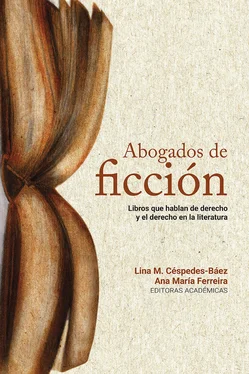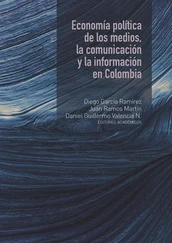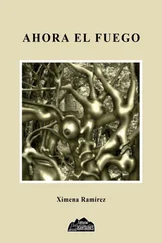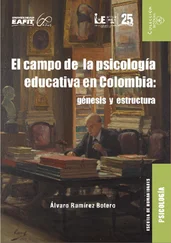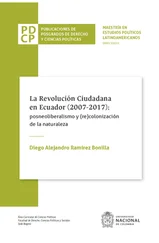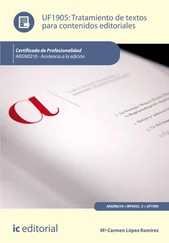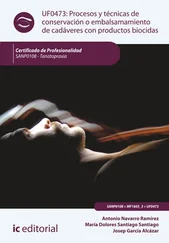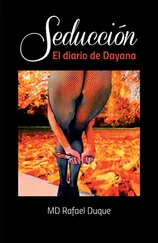En este contexto, el derecho internacional se ha encargado de legitimar prácticas imperialistas que ejercían los países europeos, según la distinción que realizaba el positivismo entre Estados civilizados y “no civilizados”. Los europeos, supuestamente, cumplían la función de civilizadores y conquistadores, y para llevarlo a cabo estaban legitimados para hacer uso de la violencia.
Koskenniemi (2001) resume la función que cumplió el derecho internacional en esta época: “La historia del derecho internacional y del imperio formal en 1870-1914 puede ser una historia de arrogancia, de ambición fuera de lugar y completa crueldad. Pero es inseparable de la historia más amplia de un internacionalismo liberal que se considera la conscience legal del mundo civilizado” (p. 176).
Referencias
Anghie, A. (2001). Colonialism and the birth of international institutions: Sovereignty, economy, and the mandate system of the League of Nations. New York University Journal of International Law and Politics, 34(3), 513-634.
Anghie, A. (2004). Imperialism, sovereignty and the making of international law. Cambridge University Press.
Bevernage, B. (2018). The making of the Congo question: Truth-telling, denial and ‘colonial science’ in King Leopold’s commission of inquiry on the rubber atrocities in the Congo Free State (1904-1905). Rethinking History, 22(2), 203-238. https://doi.org/10.1080/13642529.2018.1451078
Casement, R. (1904). Correspondence and report from his Majesty’s consul at Boma respecting the administration of the Independent State of the Congo. House of Commons. Accounts and Papers, 62. https://archive.org/details/CasementReport/page/n1/mode/2up
Casement, R. (1911). Putumayo, caucho y sangre: relación al parlamento inglés. Abya-Yala.
Chang, H. (2005). Kicking Away the Ladder: Development strategy in historical perspective. Anthem Press.
Chimni, B. S. (2012). Capitalism, imperialism, and international law in the twenty-first century. Oregon Review of International Law, 14(1), 17-46.
Chimni, B. S. (2017). International law and world order: A critique of contemporary approaches. Cambridge University Press.
Chimni, B. S. (2018). Customary international law: A third world perspective. American Journal of International Law, 112(1), 1-46. https://doi.org/10.1017/ajil.2018.12
Centro Nacional de Memoria Histórica. (2014). Putumayo: la vorágine de las caucherías (t. 1). https://centrodememoriahistorica.gov.co/putumayo-la-voragine-de-las-caucherias/
Corte Internacional de Justicia. (s. f.). Estatuto de la Corte Internacional de Justicia. https://www.icj-cij.org/es
Dussel, E. (1994). 1492: el encubrimiento por otro. Hacia el origen del mito de la modernidad. Plural.
El Espectador (2012, 12 de octubre). Santos pide perdón a indígenas por masacre en Amazonas. https://www.elespectador.com/noticias/judicial/santos-pide-perdon-a-indigenas-por-masacre-en-amazonas/
Fanon, F. (2004). The wretched of the earth (trad. R. Philcox). Grove Press.
Gómez López, A. J. (2014). La explotación cauchera, el tráfico y la esclavitud de los indios en el contexto amazónico. En Putumayo: la vorágine de las caucherías (pp. 21-48). Centro Nacional de Memoria Histórica. https://centrodememoriahistorica.gov.co/putumayo-la-voragine-de-las-caucherias/
Gordon, L. R. (2017). Frantz Fanon. En B. Evans y T. Carver (eds.), Histories of violence: Post-war critical thought (pp. 48-69). Zed Books.
Guardiola-Rivera, O. (2013). Story of a death foretold: The coup against Salvador Allende, 11 September 1973. Bloomsbury Publishing.
Guardiola-Rivera, O. (2017). Concerning violence, Part II: Fanon and the intelligent machine: Reflections from a conversation with Gayatri Chakravorty Spivak. Discourse, 39(2), 177-194. https://doi.org/10.13110/discourse.39.2.0177
Gunder Frank, A. (2009). Capitalism and underdevelopment in Latin America: Historical studies of Chile and Brazil. Monthly Review Press.
Hasian Jr., M. (2013). Colonial hermeneutics of suspicion, the spectacular rhetorics of the Casement report, and the British policing of Belgian imperialism, 1904-1908. Critical Studies in Media Communication, 30(3), 224-240. https://doi.org/10.1080/15295036.2012.670877
Koskenniemi, M. (2001). The gentle civilizer of nations: The rise and fall of international law 1870-1960. Cambridge University Press.
Mahoney, J. (2010). Colonialism and postcolonial development: Spanish America in comparative perspective. Cambridge University Press.
Montesquieu. (1987). Del espiritu de las leyes. Porrúa.
Neale-Silva, E. (1939). The factual bases of La vorágine. Publications of the Modern Language Association of America, 54(1), 316-331. https://doi.org/10.2307/458641
Nowell, C., Magdoff, H. y Webster, R. (2020, 9 de diciembre). Western colonialism. Encyclopædia Britannica. https://www.britannica.com/topic/Western-colonialism
North Continental Sea Shelf (Federal Republic of Germany/Netherlands). Judgment of 20 February 1969. Separate Opinion of Judge Fouad Ammoun. International Court of Justice.
Obregón, L. (2012). The civilized and the uncivilized. En B. Fassbender y A. Peters (eds.), The Oxford handbook of the history of international law (pp. 917-940). Oxford University Press.
Pacto de la Sociedad de Naciones. 28 de junio de 1919. https://www.iri.edu.ar/publicaciones_iri/anuario/A01/Dep-Historia/Pacto.htm
Parry, J. T. (2014). What is the grotian tradition in international law? University of Pennsylvania Journal of International Law, 35.
Pellet, A. (2006). Article 38. En A. Zimmerman, C. Tomuschat y K. Oellers-Frahm (eds.), The Statute of the International Court of justice: A commentary (pp. 819-962). Oxford University Press.
Petras, J. y Veltmeyer, H. (2016). Imperialism and capitalism: Rethinking an intimate relationship. En Power and resistance: US imperialism in Latin America (pp. 11-25). Brill.
Pineda Camacho, R. (1988). El ciclo del caucho 1850-1932. En Colombia amazónica (pp. 181-210). Villegas.
Pineda Camacho, R. (s. f.). La política indigenista entre 1886 y 1991. Credencial Historia, 146. https://www.banrepcultural.org/biblioteca-virtual/credencial-historia/numero-146/estado-y-pueblos-indigenas-en-el-siglo-xix
Porter, A. (2001). Sir Roger Casement and the international humanitarian movement. The Journal of Imperial and Commonwealth History, 29(2), 59-74. https://doi.org/10.1080/03086530108583119
Ramírez Mejía, S., Correa Aránzazu, A., Ramírez Mejía, E. y Hernández Baena, D. (2012). Aplicacion de teorías de internacionalización a la Casa Arana. Revista de Negocios Internacionales, 45(1), 44-54. https://publicaciones.eafit.edu.co/index.php/rni/article/view/999
Ramos, Ó. G. (1967). Clemente Silva, héroe de La vorágine. Boletín Cultural y Bibliográfico, 10(3), 568-582. https://dialnet.unirioja.es/servlet/articulo?codigo=5458470
Resolución 1803 (XVII) de la Asamblea General, de 14 de diciembre de 1962, titulada “Soberanía permanente sobre los recursos naturales” Aprobada por la Asamblea General en su resolución 1803 (XVII) 14 de diciembre de 1962.
Rivera, J. E. (1985). La vorágine. Oveja Negra.
Sierra, G. P. (2011). La fiebre del caucho en Colombia. Revista Credencial, 262. https://www.banrepcultural.org/biblioteca-virtual/credencial-historia/numero-262/la-fiebre-del-caucho-en-colombia
Thomas D. E. (1991). La vorágine: el marco narrativo y el retorno del héroe. Revista Chilena de Literatura, 37, 98-104.
Thomson, N. (1913). El libro rojo del Putumayo: precedido de una introducción sobre el verdadero escándalo de las atrocidades del Putumayo. Arboleda & Valencia.
The Covenant of the League of Nations (1919). https://history.state.gov/historicaldocuments/frus1919Parisv13/ch10subch1
Uribe Mosquera, T. (2013). Caucho, explotación y guerra: configuración de las fronteras nacionales y expoliación indígena en Amazonía. Memoria y Sociedad, 17(34), 34-48. https://revistas.javeriana.edu.co/index.php/memoysociedad/article/view/8303/6702
Читать дальше
